Claude 3 vs GPT 4: The AI Showdown – Is Claude 3.0 Really Beating GPT 4?
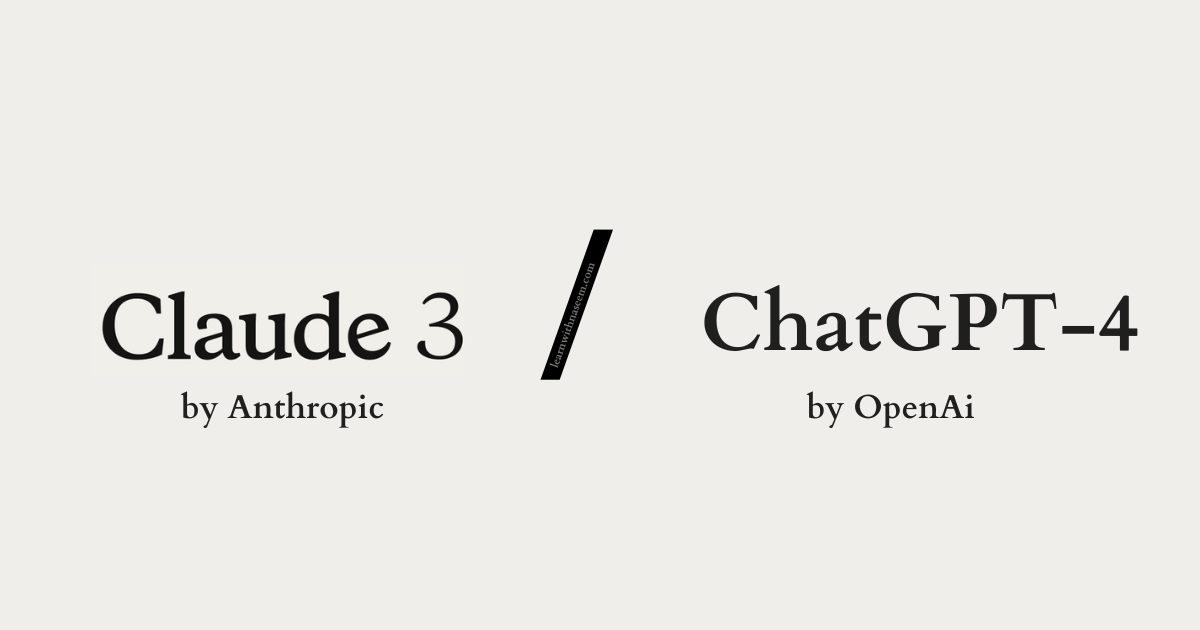

As a seasoned blogger with over a decade of experience, I’ve witnessed the rapid evolution of artificial intelligence and its impact on various industries. The latest development in this field is the release of Claude 3.0 by Anthropic, which has taken the AI community by storm. In this article, I’ll dive deep into the capabilities of Claude 3.0 and compare it to its main competitor, GPT-4.
Introduction
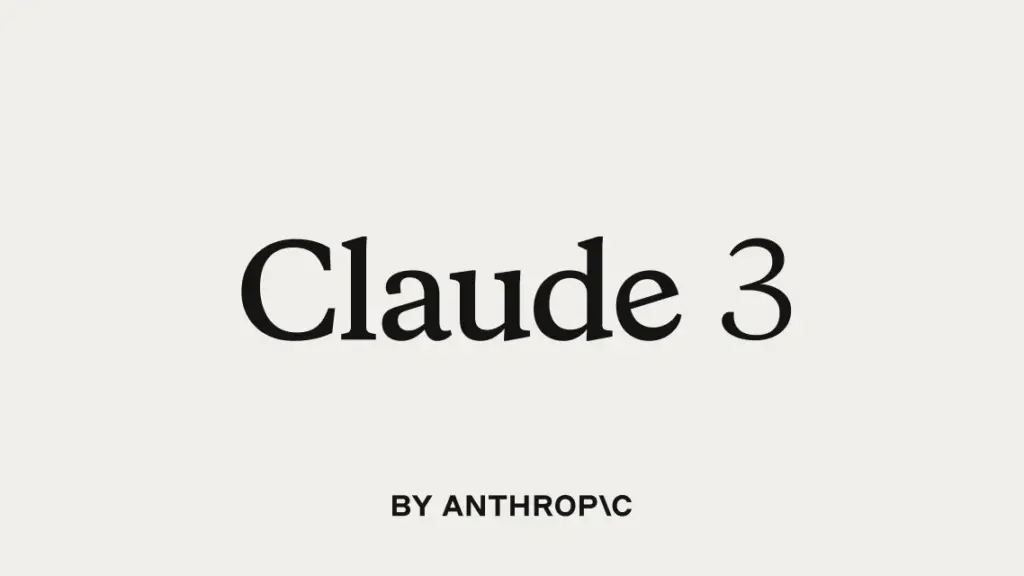
Anthropic’s Claude 3.0, announced on March 4th, comes in three different models: Claude 3 Haiku, Claude 3 Sonnet, and Claude 3 Opus. Sonnet and Opus are currently available in 159 countries, while Haiku is set to be released soon. These models vary in their capabilities, speed, and pricing, catering to different user needs.
Comparing Claude 3.0 Models
| Model | Capabilities | Speed | Pricing | Daily Message Limit |
|---|---|---|---|---|
| Claude 3 Opus | Most powerful and capable, designed for complex tasks | Slower than Haiku and Sonnet | $20/month | 5x the usage of Sonnet |
| Claude 3 Sonnet | Balanced performance and speed | Faster than Opus, slower than Haiku | Free | Varies based on demand |
| Claude 3 Haiku | Fastest, ideal for customer service chatbots | Fastest, but may be more prone to inaccuracies | TBA | TBA |
Potential use cases:
- Opus: Ideal for researchers, developers, and businesses requiring high-quality, accurate responses for complex tasks.
- Sonnet: Suitable for general users, students, and those exploring AI capabilities without investing in a paid model.
- Haiku: Best for customer service, sales, and support teams needing quick, efficient responses to common queries.
Claude 3.0 vs. ChatGPT-4 and Gemini 1.0 Ultra
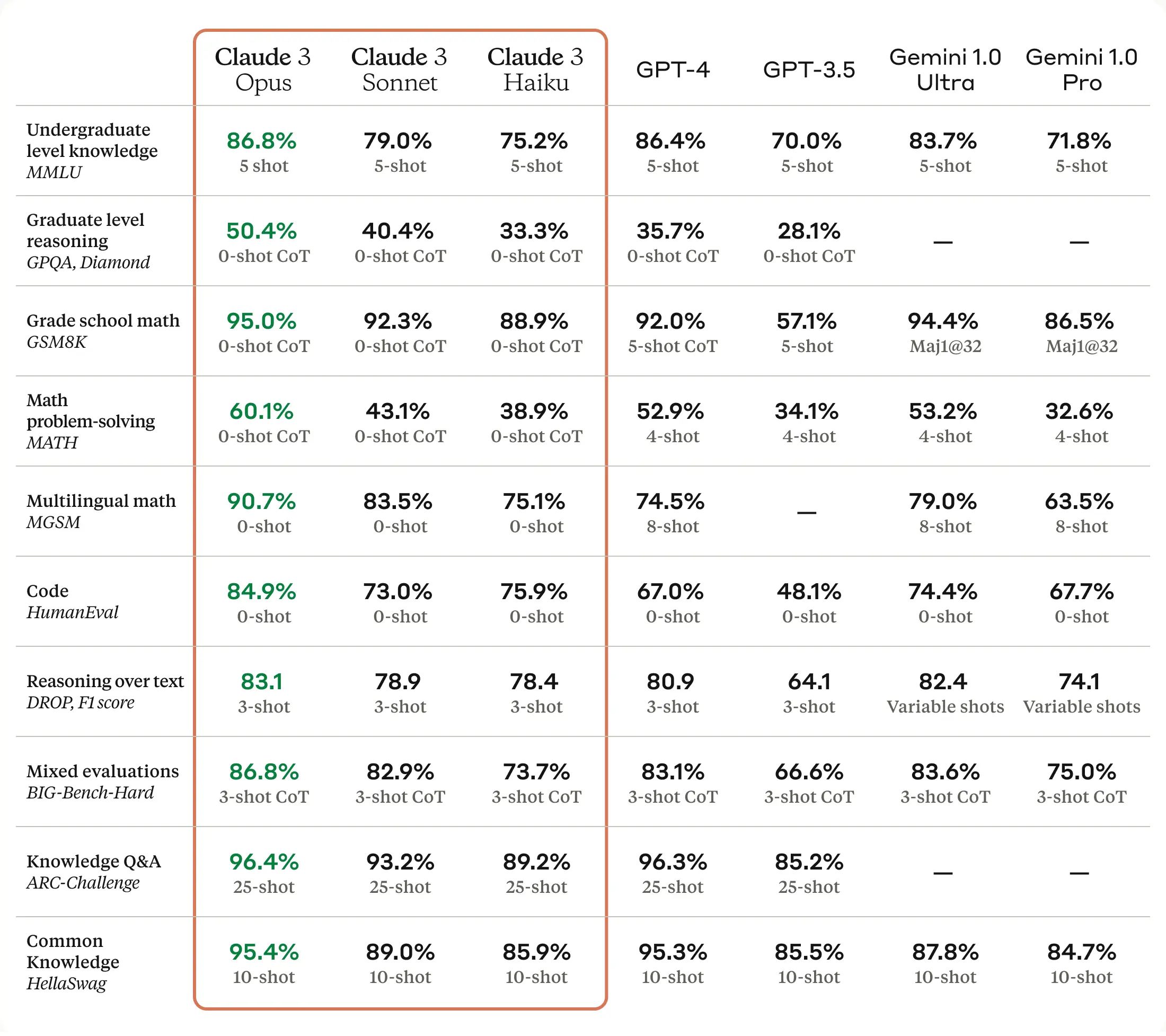
In benchmark tests conducted by Anthropic, Claude 3 Opus outperformed both GPT-4 and Gemini 1.0 Ultra in various categories, including undergraduate-level knowledge, graduate-level reasoning, grade school math, problem-solving, multilingual math, code reasoning, mixed evaluations, knowledge Q&A, and common knowledge. Interestingly, the free Claude 3 Sonnet, surpassed GPT-4 and Gemini 1.0 Ultra in several benchmarks.
Vision Capabilities
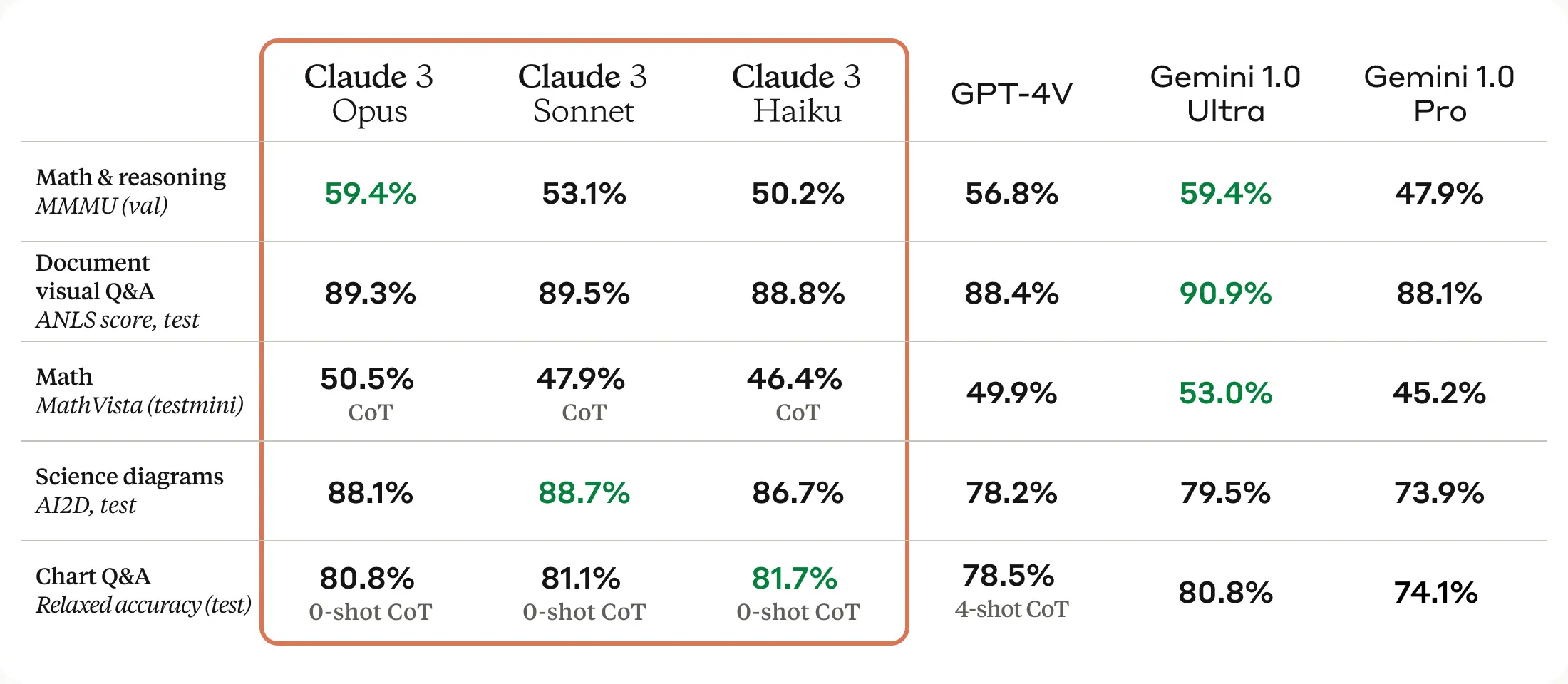
One of the most exciting new features of Claude 3.0 is its sophisticated vision capabilities, which are on par with other leading models. In document visual question and answer benchmarks, Claude 3 Opus outperformed GPT-4 Vision and tied with Gemini 1.0 Ultra. Interestingly, the free version, Claude 3 Sonnet, beat both Claude 3 Opus and GPT-4 Vision in science diagrams and chart question and answer tasks.
Long Context and Near-Perfect Recall

Claude 3.0 boasts an impressive 200,000 token context window, allowing for roughly 15,000 words of input and output. However, it can exceed 1 million tokens or 750,000 words, although this feature is currently limited to select customers. In the “needle in a haystack” test, which evaluates a model’s ability to identify a specific sentence within a large document, Claude 3 Opus achieved near-perfect recall, surpassing 99% accuracy and even recognizing the limitations of the evaluation itself.
Reduced Bias and Improved Accuracy
Anthropic claims that the new Claude models have fewer refusals, meaning they are less likely to decline answering questions due to perceived ethical concerns or potential harm. Additionally, the accuracy of Claude 3 Opus has improved compared to its predecessors.
Pricing and Value
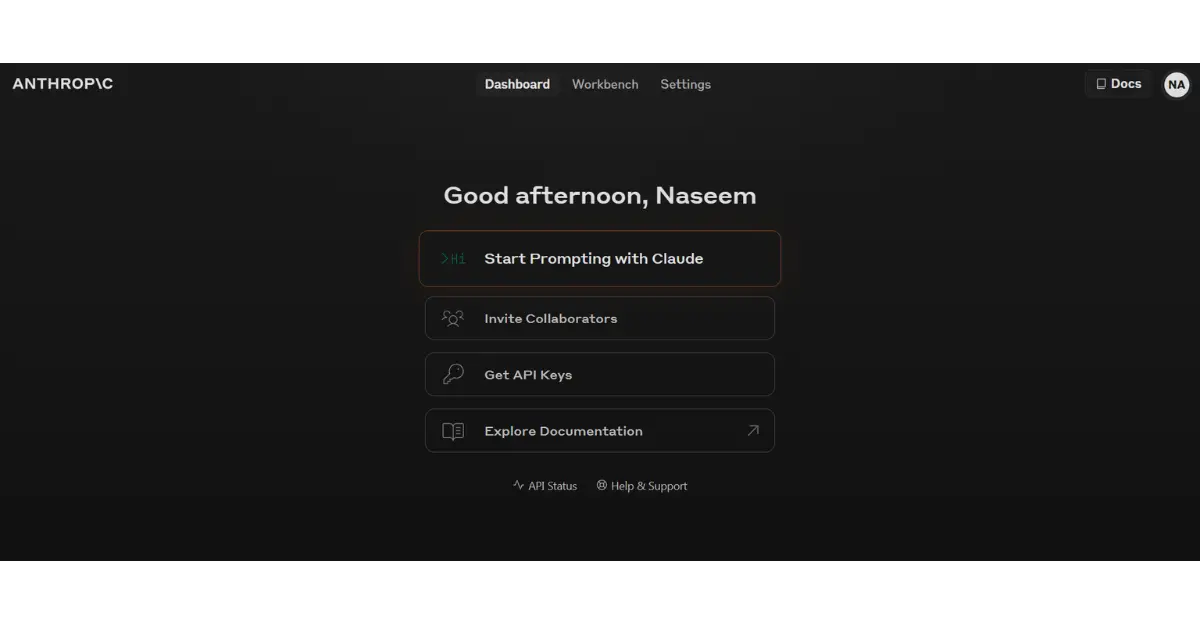
Claude 3 Sonnet, the free version, is arguably the best value for money, as it outperforms GPT-4 in most common use cases. Claude 3 Opus, the paid version at $20 per month, offers marginally better performance than Sonnet.
Conclusion
Claude 3.0 has proven to be a formidable competitor to GPT-4, with its impressive performance in various benchmarks, sophisticated vision capabilities, long context handling, and near-perfect recall. The free version, Claude 3 Sonnet, offers exceptional value for users who don’t require frequent access to the model. As the AI landscape continues to evolve, it will be exciting to see how Claude 3.0 and future iterations shape the future of natural language processing and artificial general intelligence.




I used to be more than happy to search out this internet-site.I wished to thanks to your time for this wonderful learn!! I undoubtedly enjoying every little little bit of it and I have you bookmarked to check out new stuff you weblog post.